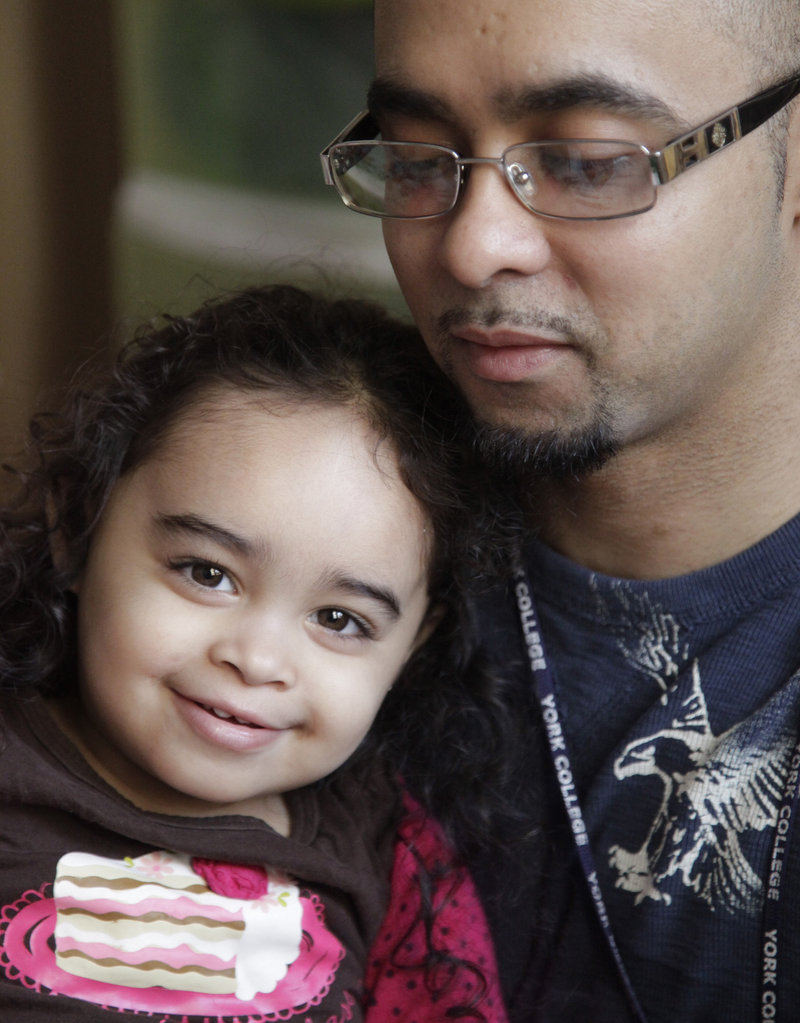ATLANTA — One child out of 88 in the United States is believed to have autism or a related disorder, an increase in the rate attributed largely to wider screening.
Advocacy groups seized on the new number as further evidence that autism research and services should get more attention.
“Autism is now officially becoming an epidemic in the United States,” Mark Roithmayr, president of Autism Speaks, said at a news conference where the new figures were released Thursday.
The previous estimate was 1 in 110. The new figure is from the latest in a series of studies that have steadily raised the government’s autism estimate. This new number means autism is nearly twice as common as officials said it was only five years ago, and likely affects roughly 1 million U.S. children and teenagers.
Health officials attribute the increase largely to better recognition of cases, through wider screening and better diagnosis. But the search for the cause of autism is only beginning, and officials acknowledge that other factors may be helping to drive up the numbers.
“One thing the data tells us with certainty — there are many children and families who need help,” said Dr. Thomas Frieden, director of the Centers for Disease Control and Prevention, the agency that released the estimate.
For decades, the diagnosis was given only to kids with severe language, intellectual and social impairments and unusual, repetitious behaviors. But the definition of the disorder has gradually expanded, so that now “autism” is also shorthand for a group of milder, related conditions, including Asperger’s syndrome.
Still, Melissa Miller, a St. Petersburg, Fla., mom whose daughter, Chelsea, was diagnosed last year at age 2, said many people misunderstand the disorder.
“I think many people hear ‘autism’ and think ‘Rain Man,’ ” she said, referring to the 1988 movie featuring Dustin Hoffman as an extremely socially impaired autistic man.
“The autism spectrum is so vast and all of our children are different. Many of them don’t rock back and forth or have savant skills. They are sweet, affectionate, intelligent, goofy — and exhausting — kids,” Miller said.
There are no blood or biologic tests for autism, so diagnosis is not an exact science. It’s identified by making judgments about a child’s behavior.
Meanwhile, there’s been an explosion in autism-related treatment and services for children. In 1990, Congress added autism as a separate disability category to a federal law that guarantees special education services. School districts have been building up autism-addressing programs since.
The CDC study is considered the most comprehensive U.S. investigation of autism prevalence to date. Researchers gathered data from areas in 14 states — Alabama, Arizona, Arkansas, Colorado, Florida, Georgia, Maryland, Missouri, New Jersey, North Carolina, Pennsylvania, South Carolina, Utah and Wisconsin.
They looked specifically at 8-year-old children because most autism is diagnosed by that age. They checked health and school records to see which children met the criteria for autism, even if they hadn’t been formally diagnosed. Then, the researchers calculated how common autism was in each place and overall.
An report based on 2002 findings estimated that about 1 in 150 children that age had autism or a related disorder such as Asperger’s. After seeing 2006 data, the figure was revised to about 1 in 110. The estimate of 1 in 88, based on 2008 data, is about 1.1 percent of kids that age.
The study also found that autism disorders were almost five times more common in boys, while a growing number of black and Hispanic children were also reported to have them. And an increasingly large proportion of children with autism have IQs of 85 or higher, it said — a finding that contradicts a past assumption that most autistic kids had IQs of 70 or lower.
The cause of autism has remained a mystery. Scientists say genetics play a role. Some parents and others have believed childhood vaccines trigger autism. However, many studies have not found a connection.
CDC researchers are looking at other possible factors, including illnesses that mothers had while they were pregnant with children who later were diagnosed as autistic.
Send questions/comments to the editors.



Success. Please wait for the page to reload. If the page does not reload within 5 seconds, please refresh the page.
Enter your email and password to access comments.
Hi, to comment on stories you must . This profile is in addition to your subscription and website login.
Already have a commenting profile? .
Invalid username/password.
Please check your email to confirm and complete your registration.
Only subscribers are eligible to post comments. Please subscribe or login first for digital access. Here’s why.
Use the form below to reset your password. When you've submitted your account email, we will send an email with a reset code.